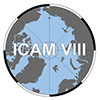|
|
|
|
|
|
|
|
Background: The Nansen Legacy, June 6, 2018 (Washington, DC. USA). The Royal Norwegian Embassy, in cooperation with The 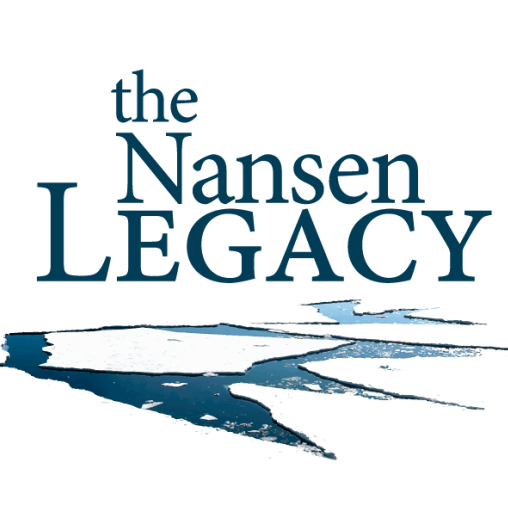 National Academy of Sciences and The Norwegian Academy of Science and Letters, is pleased to invite you to a presentation of the Nansen Legacy project, followed by a discussion focusing on how North American (and other) scientists can join the effort. The changing Arctic Ocean affects climate and ecosystems on a Pan-Arctic scale. These effects are prominent on the two large and productive inflow shelves, the Chukchi and the Barents Sea. This gives Norway and the U.S. particular and comparative responsibilities to monitor and study the changes in the gateways to the Arctic Basin. It is therefore timely and necessary to build or strengthen collaborative links to enable synoptic or comparable observations opening for synthesis across the Arctic Ocean. Please RSVP by May 31st to lea.bjorgul@mfa.no National Academy of Sciences and The Norwegian Academy of Science and Letters, is pleased to invite you to a presentation of the Nansen Legacy project, followed by a discussion focusing on how North American (and other) scientists can join the effort. The changing Arctic Ocean affects climate and ecosystems on a Pan-Arctic scale. These effects are prominent on the two large and productive inflow shelves, the Chukchi and the Barents Sea. This gives Norway and the U.S. particular and comparative responsibilities to monitor and study the changes in the gateways to the Arctic Basin. It is therefore timely and necessary to build or strengthen collaborative links to enable synoptic or comparable observations opening for synthesis across the Arctic Ocean. Please RSVP by May 31st to lea.bjorgul@mfa.no
The Effects of Climate Change on the World's Oceans, June 4-8, 2018 (Washington, DC USA). The 4th International Symposium will bring together experts from around the world to better understand climate impacts on ocean ecosystems - and how to respond. The event is hosted by a variety of groups including International Council for the Exploration of the Sea (ICES), N. Pacific Marine Science Organization (PICES), Intergovernmental Oceanographic Commission of UNESCO (IOC), and Food and Agriculture Organization of the United Nations (FAO). Session 16 includes Fran Ulmer, Diana Bull, Apurva Dave, Lawson Brigham, and Esther Babson, among others. 
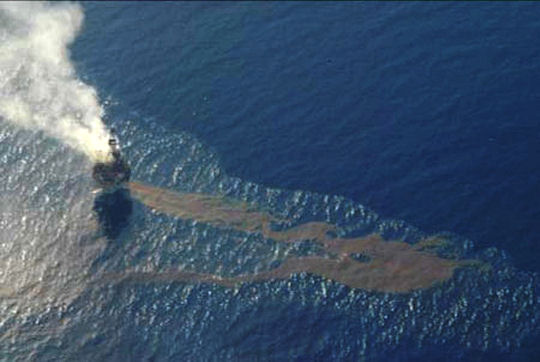 Coastal Response Research Center Requests Input on the State of Science on Dispersant Use in the Arctic. Coastal Response Research Center Requests Input on the State of Science on Dispersant Use in the Arctic. The Coastal Response Research Center (CRRC) recently collected statements and reports on five topic areas related to dispersant use in the Arctic: efficacy and effectiveness; physical transport and chemical behavior; degradation and fate; eco-toxicity and sublethal impacts; and, public health and food safety. CRRC request written input on the statements the scientists made on the state-of-the-science regarding dispersant use, particularly as it applies to Arctic waters. Written comments are requested by July 13th. More information on this initiative is available here.
|
Media
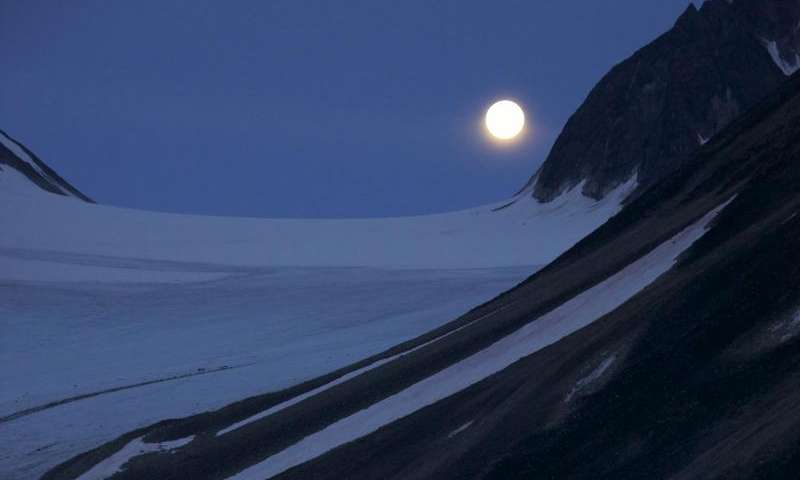 More Detailed Data on Thermal Conditions of Arctic Ground. More Detailed Data on Thermal Conditions of Arctic Ground. Understanding the thermal conditions of the ground in the Arctic is of utmost importance in order to assess the effects of climate change on the occurrence of permafrost, on the ecosystems and societies of Arctis, and the global climate system. Juha Aalto and Miska Luoto, researchers in natural geography at the University of Helsinki, participated in this study. The findings of the study have been published in the international journal Geophysical Research Letters. The research has been carried out by Juha Aalto and Miska Luoto (Department of Geosciences and Geography, University of Helsinki / Finnish Meteorological Institute), and Olli Karjalainen and Jan Hjort (Geography Research Unit, University of Oulu). Phys.org
Strengthening Indigenous Arctic Voices in IPBES' Global Biodiversity Assessment 2019. The University of Helsinki hosts a groundbreaking dialogue meeting Wednesday-Thursday June 6-7 bringing together indigenous representatives and decision makers from the Arctic region - including the Arctic Council - with leading scientists and experts from around the world. The dialogue, followed by a public seminar on June 8, will strengthen the representation of Arctic indigenous expertise and knowledge in a landmark global assessment of biodiversity and ecosystem services expected to be released in May 2019 by the 130 member States of the Intergovernmental Platform on Biodiversity and Ecosystem Services (IPBES). EurekAlert!
Scientists Plan Arctic Test of New Device, Removing Oil From Water. A special device - an air sensor, designed by biologists of the Tomsk State University, which is used to lift oil off water reservoirs' bottoms - will undergo tests in winter conditions. The scientists plan tests in Komi, a part of which is to the north from the Polar Circle, Director of the University's Biology Institute Danil Vorobyev told TASS. "We offer new solutions of how to clear the objects in winter times, <...> and now we are in search for clients," he said during an IT exhibition at the X International IT form in Khanty-Mansiysk. "Most probably, we shall have tests in Komi for Lukoil." TASS
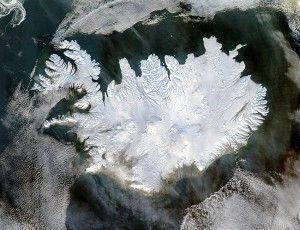 Arctic Sea Ice Creeping Its Way Toward Iceland. Arctic Sea Ice Creeping Its Way Toward Iceland. Sea ice from Greenland is extending its icy claws further south than usual, and has almost reached the Westfjords. The University of Iceland's group on volcanoes and natural disasters emphasise in their post on the matter that the creeping ice is more due to winds than an accumulation of ice, but sea ice from southeast Greenland is nonetheless making its way towards the northern tip of the Westfjords. The ice has been moving at an astonishing ten nautical miles per day, and is expected to move even closer in the days to come. Grapevine
Top Oceanographers Select Wave Gliders to Study Arctic and Southern Oceans. Top oceanographers from Scripps Institute of Oceanography (Scripps) and the Applied Physics Laboratory of the University of Washington (APL-UW) have selected Wave Gliders, the most experienced, long duration ocean robots, as their sensor platform to conduct advanced scientific research in the most inhospitable and remote regions of the Arctic and Southern Oceans. Using Liquid Robotics Wave Gliders, proven in extreme ocean conditions (sea state 6+), scientists will obtain real time data and rare insights into the dynamic conditions that drive the world's weather and climate. This data is critical for scientists to understand and improve global ocean weather modeling and climate prediction. Global News Wire
New UAF Project to Investigate North Slope Heavy Oil Extraction. The University of Alaska Fairbanks will lead an investigation of heavy oil extraction on the North Slope. The U.S. Department of Energy announced $7 million in funding for the project today as DOE research laboratory representatives gathered in Fairbanks for National Lab Day events. DOE science undersecretary Paul Dabbar says the project follows agency backed extraction research that lead to the recent year's Lower 48 oil and gas production boom. Alaska Public Media
|
|
Future Events
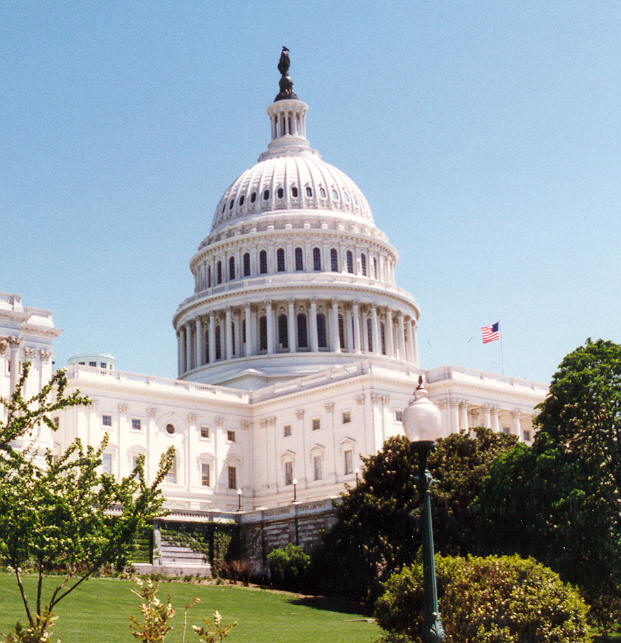 ** New this week ** Maritime Transportation in the Arctic: The US Role, June 7, 2018 (Washington, DC USA and via webcast). ** New this week ** Maritime Transportation in the Arctic: The US Role, June 7, 2018 (Washington, DC USA and via webcast). The House Transportation Committee's subcommittee on the Coast Guard and Maritime Transportation will host a hearing on maritime transportation in the Arctic. Witnesses are expected to include: RDML Dave Titley (retired US Navy), VADM Charles Ray (US Coast Guard), David Kennedy (National Oceanic and Atmospheric Administration), Dr. Lawson Brigham (University of Alaska Fairbanks and advisor to the US Arctic Research Commission), Heather Conley (Center for Strategic and International Studies), and Molly McCammon (Alaska Ocean Observing System).
Vision on Marine Infrastructure, June 11, 2018, 1:00-3:00 pm (Washington, DC
).
The U.S. Committee on the Marine Transportation System and its Marine Transportation System Federal partners will share their visions and priorities on maritime infrastructure, which refers to physical infrastructure, informational infrastructure (such as aids to navigation, nautical charts, and real-time meteorological and oceanographic services), and mariner needs. Open to the public, but RSVP is required. Please contact Jaya.Ghosh@cmts.gov by June 6, 2018 to RSVP. See here for additional details.
 POLAR 2018, June 15-27, 2018 (Davos, Switzerland). POLAR2018 is a joint event from the Scientific Committee on Antarctic Research (SCAR) and the International Arctic Science Committee (IASC). The SCAR meetings, the ASSW and the Open Science Conference will be hosted by the Swiss Federal Institute for Forest, Snow and Landscape Research WSL under the patronage of the Swiss Committee on Polar and High Altitude Research. The WSL Institute for Snow and Avalanche Research SLF is organizing POLAR2018. POLAR 2018, June 15-27, 2018 (Davos, Switzerland). POLAR2018 is a joint event from the Scientific Committee on Antarctic Research (SCAR) and the International Arctic Science Committee (IASC). The SCAR meetings, the ASSW and the Open Science Conference will be hosted by the Swiss Federal Institute for Forest, Snow and Landscape Research WSL under the patronage of the Swiss Committee on Polar and High Altitude Research. The WSL Institute for Snow and Avalanche Research SLF is organizing POLAR2018.
From Entering the Field to Taking the Helm, Women's Perspectives on Polar Research, June 20, 2018 (Kongresszentrum Davos, Switzerland). This event is hosted by ARCUS and co-sponsored by USARC. Research findings are shaping our understanding of the issues that women face in technical fields, particularly those with strong connections to fieldwork. Concerns include a deficit of female leadership due to the so-called "leaky pipeline," a lack of safety and inclusivity at field locations, and explorations of ways in which research agendas have discounted contributions of women. Despite historical barriers to participation in polar field work, women have made outstanding contributions to polar physical, biological and social sciences, as well as to community-level efforts to coordinate and communicate science. In the past decade, women have stepped into leadership roles at polar institutions. Yet evidence of persistent challenges, reflected both in academic studies and media reports, compels us to examine the sources of those challenges and to explore solutions to ensure a bright future for all those who wish to engage in polar research.
5th European Conference on Permafrost, June 23-July 1, 2018 (Chamonix-Mont Blanc, France). In the continuation of the International and Regional conferences convened by the International Permafrost Association, the 5th European Conference on Permafrost (EUCOP 2018) will be held in Chamonix-Mont Blanc, France, 23rd June - 1st July 2018. The conference aims at covering all relevant aspects of permafrost research, engineering and outreach on a global and regional level. Conference website: here.
Arctic Observing Summit 2018, June 24-26, 2018 (Davos, Switzerland). The Arctic Observing Summit (AOS) is a high-level biennial summit that provides a platform to address urgent and broadly recognized needs of Arctic observing across all components of the Arctic system. AOS 2018 will be held in Davos, Switzerland ( June 24-26) and will focus on pressing issues in the implementation and support of sustained observations that can be addressed through a business-case lens. To that end, short submissions are requested that address any and all aspects of the overarching theme and sub-themes. Additional information can be found here.
17th International Congress of Circumpolar Health (ICCH17), August 12-15, 2018 (Copenhagen, Denmark). The ICCH congresses are held every third year in different locations in the circumpolar area and represent the largest scientific meetings worldwide on circumpolar health. The ICCH congresses serve as the primary source of information exchange and scholarly communication in issues relating to circumpolar health. More than 750 participants generally register and participate in each Congress, and more than 400 scientific papers or posters are usually presented.
UArctic Congress 2018, September 3-7, 2018 (Oulu and Helsinki, Finland). The UArctic Congress 2018 will bring together key UArctic meetings and a science conference into one single gathering, including business meetings of the Council of UArctic, Rectors' Forum, Student Forum, and Thematic Networks & UArctic Institutes Leadership Team. The Congress is an integral part of the Finland's Arctic Council chairmanship program, and open to the public. The event will highlight the themes and priorities of the Finnish chairmanship, including the goals of the United Nations' 2030 Agenda for Sustainable Development, and the Paris Agreement under the UN Framework Convention on Climate Change.
Scientific Exploration of the Arctic and North Pacific (SEA-NorP), September 25-27, 2018 (Mt. Hood, Oregon USA). This workshop will include discussion of hypotheses that can be tested by scientific drilling in the region, the technology necessary to achieve those goals, ideal sites for drilling based on existing data, and where additional site survey data is needed. The goal of the workshop organizers is that multiple proposals will be initiated at the workshop, both for full cruise legs and for shorter, targeted expeditions around the following themes: ocean gateways, geohazards, volatile cycling, ice histories at transition zones, biosphere and climate.
The second Arctic Biodiversity Congress is hosted by the Conservation of Arctic Flora and Fauna (CAFF), the biodiversity working group of the Arctic Council, and the Ministry of the Environment, Finland. The second Arctic Biodiversity Congress will build on the success of the first Congress, held in 2014 in Trondheim, Norway, and will bring together scientists, policymakers government officials, Indigenous representatives, Traditional Knowledge holders, industry, non-governmental organizations, and others to promote the conservation and sustainable use of Arctic biodiversity.
|
|

  
4350 N. Fairfax Drive, Suite 510
Arlington, VA 22203, USA
External links in this publication, and on the USARC's World Wide Web site ( www.arctic.gov) do not constitute endorsement by the US Arctic Research Commission of external Web sites or the information, products or services contained therein. For other than authorized activities, the USARC does not exercise any editorial control over the information you may find at these locations. These links are provided consistent with the stated purpose of this newsletter and the USARC Web site.
|
|
|
|
|
|
|
|
|
 More Detailed Data on Thermal Conditions of Arctic Ground. Understanding the thermal conditions of the ground in the Arctic is of utmost importance in order to assess the effects of climate change on the occurrence of permafrost, on the ecosystems and societies of Arctis, and the global climate system. Juha Aalto and Miska Luoto, researchers in natural geography at the University of Helsinki, participated in this study. The findings of the study have been published in the international journal Geophysical Research Letters. The research has been carried out by Juha Aalto and Miska Luoto (Department of Geosciences and Geography, University of Helsinki / Finnish Meteorological Institute), and Olli Karjalainen and Jan Hjort (Geography Research Unit, University of Oulu). Phys.org
More Detailed Data on Thermal Conditions of Arctic Ground. Understanding the thermal conditions of the ground in the Arctic is of utmost importance in order to assess the effects of climate change on the occurrence of permafrost, on the ecosystems and societies of Arctis, and the global climate system. Juha Aalto and Miska Luoto, researchers in natural geography at the University of Helsinki, participated in this study. The findings of the study have been published in the international journal Geophysical Research Letters. The research has been carried out by Juha Aalto and Miska Luoto (Department of Geosciences and Geography, University of Helsinki / Finnish Meteorological Institute), and Olli Karjalainen and Jan Hjort (Geography Research Unit, University of Oulu). Phys.org Arctic Sea Ice Creeping Its Way Toward Iceland. Sea ice from Greenland is extending its icy claws further south than usual, and has almost reached the Westfjords. The University of Iceland's group on volcanoes and natural disasters emphasise in their post on the matter that the creeping ice is more due to winds than an accumulation of ice, but sea ice from southeast Greenland is nonetheless making its way towards the northern tip of the Westfjords. The ice has been moving at an astonishing ten nautical miles per day, and is expected to move even closer in the days to come. Grapevine
Arctic Sea Ice Creeping Its Way Toward Iceland. Sea ice from Greenland is extending its icy claws further south than usual, and has almost reached the Westfjords. The University of Iceland's group on volcanoes and natural disasters emphasise in their post on the matter that the creeping ice is more due to winds than an accumulation of ice, but sea ice from southeast Greenland is nonetheless making its way towards the northern tip of the Westfjords. The ice has been moving at an astonishing ten nautical miles per day, and is expected to move even closer in the days to come. Grapevine
 National Academy of Sciences and The Norwegian Academy of Science and Letters, is pleased to invite you to a presentation of the Nansen Legacy project, followed by a discussion focusing on how North American (and other) scientists can join the effort.
National Academy of Sciences and The Norwegian Academy of Science and Letters, is pleased to invite you to a presentation of the Nansen Legacy project, followed by a discussion focusing on how North American (and other) scientists can join the effort. 
 Coastal Response Research Center Requests Input on the State of Science on Dispersant Use in the Arctic. The Coastal Response Research Center (CRRC) recently collected statements and reports on five topic areas related to dispersant use in the Arctic: efficacy and effectiveness; physical transport and chemical behavior; degradation and fate; eco-toxicity and sublethal impacts; and, public health and food safety. CRRC request written input on the statements the scientists made on the state-of-the-science regarding dispersant use, particularly as it applies to Arctic waters.
Coastal Response Research Center Requests Input on the State of Science on Dispersant Use in the Arctic. The Coastal Response Research Center (CRRC) recently collected statements and reports on five topic areas related to dispersant use in the Arctic: efficacy and effectiveness; physical transport and chemical behavior; degradation and fate; eco-toxicity and sublethal impacts; and, public health and food safety. CRRC request written input on the statements the scientists made on the state-of-the-science regarding dispersant use, particularly as it applies to Arctic waters.  ** New this week **
** New this week ** 